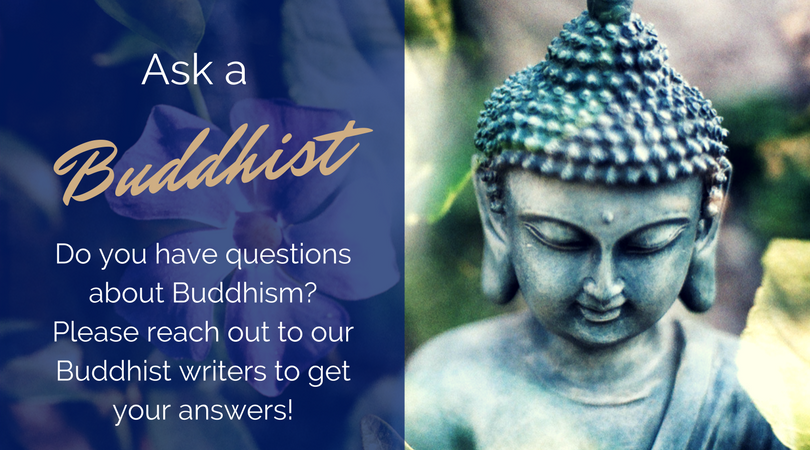Ask A Buddhist: What Makes A Person A Buddhist?
What do you want to ask a Buddhist? Fill out the form below or submit your question online.
What makes a person a Buddhist?
Buddhism is the world’s fourth largest religion and includes quite a diversity of traditions, beliefs and spiritual practices based on teachings attributed to the Indian sage, Shakyamuni Buddha in the 5th or 4th century BCE. While all religions teach methods for increasing our positive human qualities, each religion also has its own doctrinal reasons for why we cultivate these good qualities.
All living beings seek happiness and would like to lead happier lives. The Buddha taught that, contrary to appearances, the source of happiness lies within our own minds. Through study and meditation, we come to recognize that our thoughts, emotions and attitudes greatly affect what we feel and experience. For example, destructive emotions like anger, jealousy, greed, arrogance and the actions motivated by them disturb our mental peace, create unhappiness and unnecessary problems for ourselves and others. Positive emotions like compassion, gratitude, patience, forgiveness and humility tend to bring greater happiness and well-being and, with training, can be further developed within us.
Interconnectedness and dependence on others to survive and thrive is central to Buddha’s teachings. Realizing this interdependence counters the selfish thoughts and behaviors that alienate us from others and contribute to unhappiness.
The Buddha taught that at the root of all the misperceptions we have about ourselves and others is ignorance—a misapprehension of how we ourselves and all phenomena exist. Also, that this ignorance can be completely overcome by cultivating wisdom. All of Buddha’s teachings are based on logic and reasoning, and practitioners are encouraged to investigate the teachings thoroughly for ourselves before accepting them as valid. In fact, this investigation itself is an important form of practice.
Of course, anyone can learn about Buddhism and benefit from Buddhist meditation practices without ever becoming a Buddhist. Once we have experienced for ourselves the beneficial and transformative effects of applying Buddhist ideas and practices, we’ll be curious about the qualities of the Buddha who taught such practices. We’ll want to learn more about the Dharma path he taught, and we’ll investigate the qualities of his realized followers, the Sangha. We also learn about spiritual results that can come about due to dedicated practice, such as greater peace and contentment now, fortunate rebirths in the future, personal liberation from suffering, and, eventually, complete awakening.
All Buddhist traditions agree that a person becomes a Buddhist by taking refuge. This means that we entrust our spiritual guidance to the Buddha, following his path of training in the ethical conduct of non-harming, developing concentration, and cultivating wisdom.
Taking refuge can be done either by participating in a formal ceremony with a qualified teacher, or simply by entrusting ourselves from our hearts to the Three Jewels—the Buddha, Dharma, and Sangha—as reliable objects of refuge. Once we have taken refuge, we continue to increase our reliance on the Buddha, Dharma, and Sangha by sincerely studying the teachings, reflecting on them in light of our own experience, and meditating on them to fully integrate them in our lives.
Perhaps this answer has brought up even more questions for you. If so, please have a look at the thubtenchodron.org website where you can find more teachings and resources on taking refuge.
https://form.jotform.com/form/82645103139150






